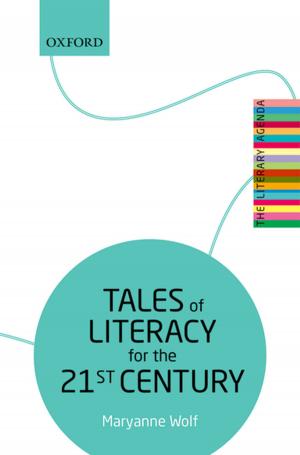Language in Society
An Introduction to Sociolinguistics
Nonfiction, Reference & Language, Language Arts, Linguistics| Author: | Suzanne Romaine | ISBN: | 9780191607028 |
| Publisher: | OUP Oxford | Publication: | October 5, 2000 |
| Imprint: | OUP Oxford | Language: | English |
| Author: | Suzanne Romaine |
| ISBN: | 9780191607028 |
| Publisher: | OUP Oxford |
| Publication: | October 5, 2000 |
| Imprint: | OUP Oxford |
| Language: | English |
Why have 1500 separate languages developed in the Pacific region? Why do Danes understand Norwegians better than Norwegians understand Danish? Is Ebonics a language or a dialect? Linguistics tends to ignore the relationship between languages and the societies in which they are spoken, while sociology generally overlooks the role of language in the constitution of society. In this book Suzanne Romaine provides a clear, lively, and accessible introduction to the field of sociolinguistics and emphasizes the constant interaction between society and language, discussing both traditional and recent issues including: language and social class, language and gender, language and education, and pidgins and creoles. The text shows how our linguistic choices are motivated by social factors, and how certain ways of speaking come to be vested with symbolic value and includes examples drawing on studies of cultures and languages all over the world. This new edition incorporates new material on current issues in the study of gender as well as other topics such as the linguistic dimension to the ethnic conflict in the Balkans, and the controversy over Ebonics in the United States.
Why have 1500 separate languages developed in the Pacific region? Why do Danes understand Norwegians better than Norwegians understand Danish? Is Ebonics a language or a dialect? Linguistics tends to ignore the relationship between languages and the societies in which they are spoken, while sociology generally overlooks the role of language in the constitution of society. In this book Suzanne Romaine provides a clear, lively, and accessible introduction to the field of sociolinguistics and emphasizes the constant interaction between society and language, discussing both traditional and recent issues including: language and social class, language and gender, language and education, and pidgins and creoles. The text shows how our linguistic choices are motivated by social factors, and how certain ways of speaking come to be vested with symbolic value and includes examples drawing on studies of cultures and languages all over the world. This new edition incorporates new material on current issues in the study of gender as well as other topics such as the linguistic dimension to the ethnic conflict in the Balkans, and the controversy over Ebonics in the United States.















